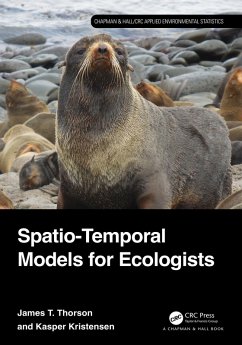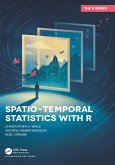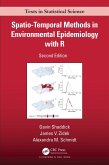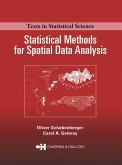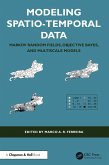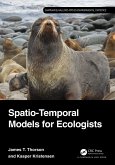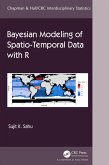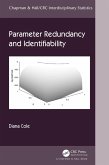Ecological dynamics are tremendously complicated and are studied at a variety of spatial and temporal scales. Ecologists often simplify analysis by describing changes in density of individuals across a landscape, and statistical methods are advancing rapidly for studying spatio-temporal dynamics. However, spatio-temporal statistics is often presented using a set of principles that may seem very distant from ecological theory or practice. This book seeks to introduce a minimal set of principles and numerical techniques for spatio-temporal statistics that can be used to implement a wide range of real-world ecological analyses regarding animal movement, population dynamics, community composition, causal attribution, and spatial dynamics. We provide a step-by-step illustration of techniques that combine core spatial-analysis packages in R with low-level computation using Template Model Builder. Techniques are showcased using real-world data from varied ecological systems, providing a toolset for hierarchical modelling of spatio-temporal processes.
Spatio-Temporal Models for Ecologists is meant for graduate level students, alongside applied and academic ecologists.
Key Features:
- Foundational ecological principles and analyses
- Thoughtful and thorough ecological examples
- Analyses conducted using a minimal toolbox and fast computation
- Code using R and TMB included in the book and available online
Dieser Download kann aus rechtlichen Gründen nur mit Rechnungsadresse in A, B, BG, CY, CZ, D, DK, EW, E, FIN, F, GR, HR, H, IRL, I, LT, L, LR, M, NL, PL, P, R, S, SLO, SK ausgeliefert werden.

